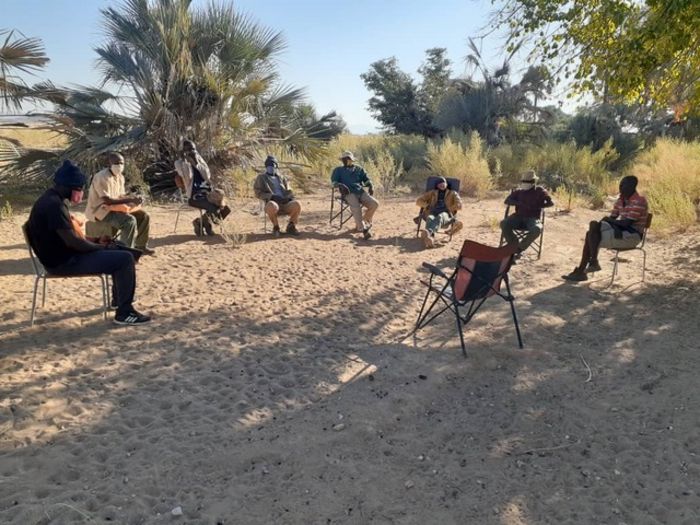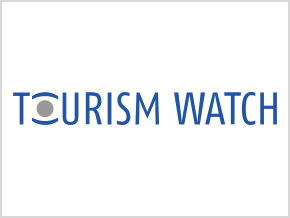Animal welfare activists, development workers and NGOs report that poaching is increasing again in times of COVID 19. This could also be due to a lack of income from tourism during the pandemic. New economic prospects for the rural population in protected areas can prevent hunting big game out of necessity.
Pandemic Poaching: How COVID 19 is threatening wildlife
Worldwide hunger is on the raise in the wake of the Corona crisis. In some areas, more and more people are tempted to hunt protected wild animals. Animal welfare activists, development workers and NGOs report that poaching is increasing again in times of pandemic lockdown. This could also be due to a lack of income from tourism.
Subsistence through Pandemic-Pouching
The lack of regular employment and income has resulted in more people turning to natural resources around them for subsistence: in some parts of Africa and Asia illegal hunting has increased, both of protected species and in protected areas.
In their new brochure, the NGOs WWF and TRAFFIC speak of "pandemic poaching": "In some countries, an increasing trend of poaching for food and income replacement has been recorded over the last few months. In Uganda, for instance, cases seem to have doubled between February and May compared to the previous year. In India, poaching increased by 150% during the lockdown. In both cases, it was mainly an increase in bushmeat poaching for subsistence use and local consumption", says Katharina Trump from WWF. But are those poachers former tourism employees in the conservation areas? Pretty unlikely, says Willie Boonzaaier, Programme Director of the Integrated Rural Development and Nature Conservation (IRDNC), a Bread for the World partner organization focussed to improve the lives of rural people by diversifying socio-economic perspectives in Namibia’s conservation areas: “The people who were employed in tourism may not become poachers especially if the reason they are in tourism was because they are passionate about wildlife. Travel restrictions have especially impacted small-scale traders who travel in neighbouring countries and other towns in Namibia to purchase wares for trading. This has led to a loss of income and eventually can lead to poaching. However, we do not have sufficient data yet to confirm a real increase in poaching since COVID struck”, says Boonzaaier.
Dr Richard Thomas from the wildlife trade specialist NGO TRAFFIC sees the absence of tourists itself as a main challenge to prevent poaching during the pandemic: „For many protected areas tourism is a central source of funding. With this no longer being available, the areas can only afford fewer rangers and there are no tourist visitors around with an open eye on big game. This makes it easier for poachers to move around the areas unnoticed.“ Presence on site seems to be key, also operator „Wilderness Safari“ is claiming: „The absence of normal ecotourism activities could present an opportunity to poachers, and therefore we continue to work closely with our government partners and local authorities to carry out the necessary patrols in our various concessions“, says Dr Neil Midlane, Wilderness Safaris Group Sustainability Manager.
Livelihood against poaching
Only little help is expected from the state. Many governments, which are already struggling with a lack of tax revenues anyway, have to reallocate funds in their tight budgets for the fight against COVID-19. Biodiversity certainly is not a priority. Also the budgets are too tight to broadly support people who get unemployed, which is especially precarious considering that as many as seven people in Namibia are dependent on one salaried family member. Therefore, IRDNC and KfW have talked to the tourism industry to keep all staff at least part of the salary. The KfW finances will be used to assist the tourism operators in Namibia’s conservancies to cover 25% of the salary costs as a grant with a further 50% that can be applied for as a an interest free loan that will be repayable once the occupancy rates improve. Initiatives like this are especially important, as alternative working options for sustaining the livelihood of people who used to work in tourism are limited, even though many companies are trying to reinvent themselves. Therefore, subsistence poaching can also be reduced through diversifying opportunities to generate an income in rural areas of Africa. „We should not leave the communities within conservancies alone in this difficult times. We can support them with options to upscale their traditional livelihoods, such as improved agricultural practices for both crop and livestock farming, promoting local tourism and with training and necessary equipment. Also, virtual tourism can be piloted. Another option could be to absorb tour guides to temporarily monitor wildlife, and conduct patrols. The latter could be essential to stop poaching while tourism ‘isn’t watching’”, says Boonzaaier.
Rather, an increase in poaching also threatens to cause lasting damage to safari tourism providers. Though largely affected by the current issues and travel bans, many tourism companies therefore try to hold their staff: „It is vitally important to supplement the lost income of the people who’ve been affected by the slowdown in the industry – primarily in the form of ensuring food security for those who can no longer afford to feed themselves and their families. Through this support, we are able to entrench the good relationships that have taken years to nurture. At the same time we reduce the likelihood of people having to revert to poaching and thus putting the basis of our business success at risk“, Midlane from Tour Operator Wilderness Safari states.
Poaching after the pandemic
Increasing poaching is not only a threat to wildlife but might have severe impacts on economies even long after the pandemic. Healthy wildlife stocks and healthy communities are the basis for safari tourism, which is one of the most important forms of tourism in many countries in Africa and Asia. Richard Thomas rather shares an optimistic outlook: “Obviously with the collapse of the tourism industry, those previously employed within it may now find themselves out of work and will drift away to other forms of employment, but I would anticipate the overwhelming majority will only pursue any alternative income source that is legal. I would imagine those who are poaching to sustain themselves and their families will be short-term. However, the key question is whether COVID and the economic turmoil it has precipitated leads to a significant drop in demand for illegal wildlife products—if it has, then that will inevitably help bring poaching to supply that demand crashing down“, says Thomas.



